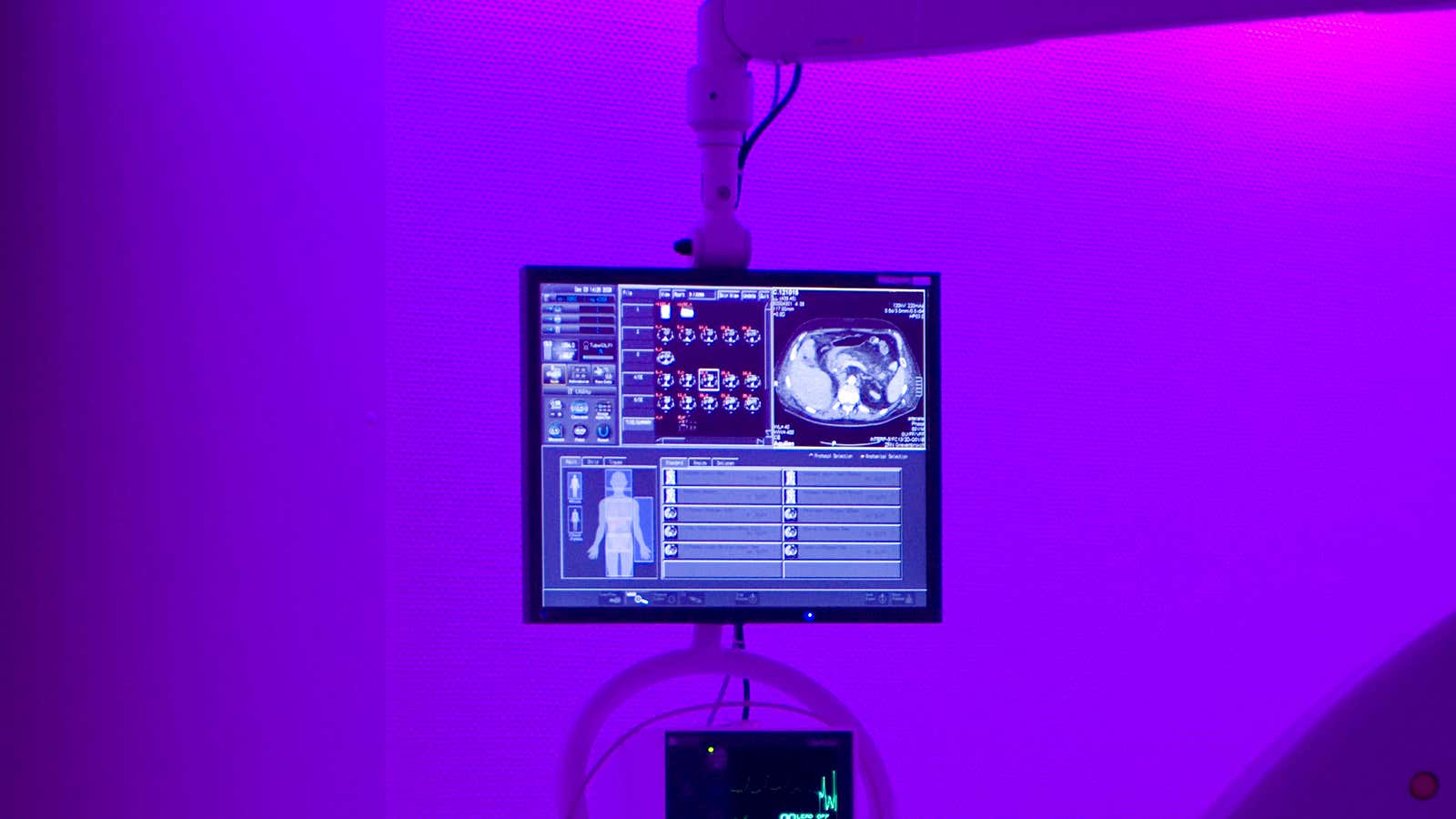The digital revolution is helping to advance the healthcare industry in leaps and bounds, making medical imaging available in an instant and improving the accuracy of patient recordkeeping. However, all too often these records get buried in hospital servers, inaccessible to physicians and caregivers. As patients move from specialist to specialist, they’re at risk of digital degradation, and while health data is collected from a variety of disparate sources, it does not always follow the patient.
The rising cost of healthcare has made big news of late, as most people will be touched by a hospital system numerous times throughout their lives. While there are significant societal challenges associated with this trend, new solutions are emerging to help care providers keep costs under control while improving the quality of patient care. To do that, hospitals need to get smarter.
One way of decreasing costs is to centralize healthcare records into accessible, highly available digital repositories, which can help to prevent costly errors or late diagnoses. Ideally, care providers need systems that can seamlessly alert emergency personnel to current medications, a recent surgery, or other otherwise unforeseen complications. However, too often this vital data exists in inaccessible, non-digital formats. The first step is happening already, as providers move their information to the cloud. After that, the data needs to be organized around patients, rather than processes.
Indexing disparate health systems and data can be extremely complex, requiring a combination of intelligent automation and simple, patient-centric design. Smart healthcare systems must also be streamlined to provide a centralized repository and seamless user experience for patients and the hospitals, doctors and family members that care for them. This requires finding a way for healthcare providers to view the entire patient pathway from a centralized view—anytime, anywhere.
Carilion Clinic in Virginia deployed Hitachi Clinical Repository (HCR) to make this a reality for the one million people it serves each year.
The initiative is a prime example of Hitachi’s Social Innovation Business: a forward-thinking solution that applies Hitachi’s technological expertise to address a universal challenge to our social infrastructure—in this case, supporting the health and security of a growing population living longer in a more connected world. Specifically, HCR integrates multiple disparate hospital systems, each with its own software update channel and maintenance schedule. This integration enables greater data mobility so that providers can retrieve images and records quickly from devices across its facilities.
Like many healthcare providers, Carilion relies on proprietary applications to capture and store clinical data. HCR augments the electronic medical record (EMR) with unstructured data that proprietary systems might miss, integrating all digital medical images, electronic medical records, and metadata associated with each patient. It can then store that amalgam of data as standards-based objects, unrestricted by proprietary formats.
This kind of improvement in hospital systems is happening rapidly as younger generations enter the healthcare system. Their digital-first habits demand the modernization of hospitals, doctors’ offices, and pharmacies, and their tech savviness also makes them natural “early adopters,” quick to adapt to and use new technologies. As these systems experience more use and feedback, they become increasingly automated and more intelligent through analytics.
Clinical analytics is good for business and for patients. Data management is not only about storing information, but also transforming it into insight. Health data insight services are a rapidly growing market segment, and sophisticated data mining improves patient outcomes—especially when it comes to preventive care. However, gathering the data is just step one of the challenge: realizing big data’s potential to enable a large-scale, positive impact on the healthcare industry requires that healthcare providers have the ability to connect data sources and silos at the hospital level.
The results at Carilion Clinic offer an ideal use case for centralized health data management: Physicians can now be sure they are making holistic diagnoses, based on a full and accurate patient record, regardless of origin—whether an image in radiology, a video in the operating room, or a pharmacy prescription. Ultimately, the cloud allows patients and providers alike to rest easier and act confidently.
Read more
about how Hitachi’s vision for Social Innovation will help solve global healthcare challenges.
This article was produced on behalf of Hitachi by the Quartz marketing team and not by the Quartz editorial staff.
